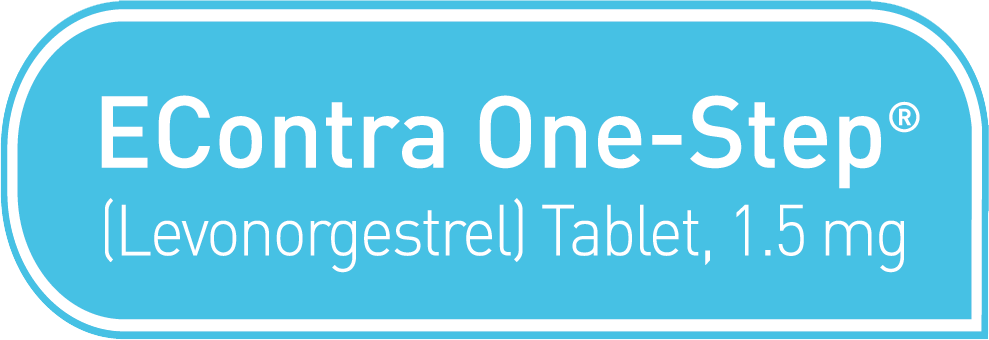Important Information for EContra One-Step®1
What is EContra One-Step®?
EContra One-Step® is emergency contraception that helps prevent pregnancy after regular birth control failure or unprotected sex. It is a backup method of preventing pregnancy and should not be used as regular birth control.
What EContra One-Step® is not:
EContra One-Step® will not work if you are already pregnant and will not affect an existing pregnancy.
When should I use EContra One-Step®?
The sooner you take emergency contraception, the better it works. You should use EContra One-Step® within 72 hours (3 days) after you have unprotected sex. EContra One-Step® is a backup or emergency method of birth control you can use when your regular birth control was used incorrectly or failed, or when you did not use any birth control.
When should I not to use EContra One-Step®?
EContra One-Step® should not be used as a regular birth control method, because it’s not as effective as regular birth control. EContra One-Step® should not be used if you are already pregnant, because it will not work. EContra One-Step® should not be used if you are allergic to levonorgestrel or any other ingredients in EContra One-Step®.
What else should I know about taking EContra One-Step®?
Ask a healthcare provider or pharmacist before using EContra One-Step® if you are taking efavirenz (HIV medication), rifampin (tuberculosis treatment), or medication for seizures (epilepsy). These medications may reduce the effectiveness of EContra One-Step® and increase your chance of becoming pregnant. Your healthcare provider may prescribe another form of emergency contraception that may not be affected by these medications.
What are possible side effects of EContra One-Step®?
Commonly reported adverse reactions include period changes, abdominal pain, nausea/vomiting, tiredness, headache, dizziness, and breast pain. Contact your healthcare provider if you have severe abdominal pain.
EContra One-Step® will not protect you from HIV infection (AIDS) and other sexually transmitted diseases (STDs).
Please review the full Prescribing Information and Patient Information here.

